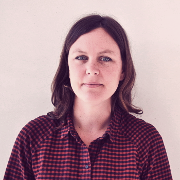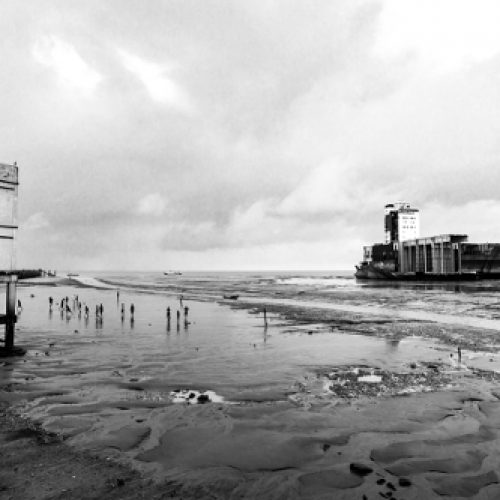Press Release – Norwegian Central Bank excludes companies from government Pension Fund Global because of their beaching practices
Evergreen and Precious Shipping loose investments from the largest sovereign wealth fund in the world
The Norwegian Central Bank announced today its decision to exclude ship owners Evergreen Marine Corporation, Precious Shipping, Korea Line Corporation and Thorensen Thai Agencies from the Government Pension Fund Global (GPFG) [1]. The exclusion is based on the companies’ poor management of their end-of-life ships and the sale of these for dirty and dangerous shipbreaking on the beaches of Gadani, Pakistan and Chittagong, Bangladesh.
The Norwegian Council on Ethics directs the Norwegian Central Bank, which manages the Government Pension Fund Global, on which companies should be excluded from investments in the fund, based on human rights and humanitarian violations, corruption and environmental degradation records. The GPFG is the largest sovereign wealth fund in the world, owning 1% of all investments worldwide, and the recommendations of the Council on Ethics weigh on other investors as indications of good financing.

The NGO Shipbreaking Platform has documented that in the last three years, 20 ships were sold by Evergreen, Korea Line, Precious Shipping and Thoresen Thai Agencies to beaching facilities in South Asia. The companies have been excluded from the GPFG because the beaching of their vessels cause severe environmental damage and serious human rights violations [2].
Whilst the exclusions so far are limited to companies that have sold their end-of-life vessels to be beached in Bangladesh and Pakistan, the reports clearly state that “to date, the Council on Ethics has not examined the way ships are broken up in India.” Many of the concerns raised by the Council also apply to the beaching practices in Alang, India. Indeed, as stated in their reports: “One particular problem with beaching is that shipbreaking takes place when the vessels are standing in mud and sand. As a result, the pollution leaches into the ground and is washed out with the tides. Even if arrangements were put in place at the beaching sites for the treatment of asbestos and PCBs, for example, the fundamental problem of containing and collecting the pollution would be impossible to resolve”. In light of this, the Platform encourages the Council on Ethics to also engage with companies that sell their ships for breaking on the beach of Alang, India.
According to the Council on Ethics, selling a vessel to a beaching yard “is a consequence of an active choice on the part of the company that owned the vessel to maximise its profit. In the Council’s opinion, that company must shoulder an independent responsibility for doing so. There are better ways of dismantling ships that are readily available to the shipowner, but these are more expensive”.

Bearing in mind that Taiwan used to be the destination for breaking ships before the boom of the industry in South Asia, it is particularly damning for Evergreen – a Taiwanese company – not to remember the legacy that the industry left in its country following the explosion in the port of Kaohsiung in 1988.

NOTES
[1] An additional company, the South Korean Pan Ocean Co Ltd, has been placed under observation. In its assessment of the likelihood that the company will in future contribute to such norm violations, the Council on Ethics has attached importance to the company’s assurance that it is willing in future to take the method of breakup into account as far as possible when making decisions on the sale of vessels for scrapping.
[2] The following serious concerns related to beaching are outlined by the Council of Ethics:
- continuous, innumerable and serious violations of a number of ILO conventions whose purpose it is to establish minimum standards which safeguard the lives and health of workers. Wide-ranging and serious violations of these conventions must be deemed to infringe fundamental rights to life and health, the sum of which must be said to constitute a serious breach of fundamental human rights.
- serious pollution and the dispersal of environmental toxins, which in turn have a negative impact on human health and ecosystems in the area.
Related news

Press Release – Brazilian Navy suddenly seizes its old warship forcing it to sea
NGOs urgently call on President Lula to prevent Navy from sinking toxic ship in the Atlantic.
... Read More
Press Release – Platform publishes list of ships dismantled worldwide in 2017
European ship owners top the list of global dumpers: the EU must do more to reverse this scandal According to new data released today by the… Read More

Press Release – NGO publishes 2015 list of all ships dismantled worldwide
Read our country-specific press releases: Belgium and France | Brazil and Portugal | Germany | Greece | Italy | Japan | Spain Read what the North… Read More

Press Release – Platform publishes list of ships dismantled worldwide in 2018
744 large ocean-going commercial vessels were sold to the scrap yards in 2018. Of these vessels, 518 were broken down on tidal mudflats in South Asia.
... Read More
Press Release – NGOs warn that Hong Kong Convention will fail to ensure sustainable ship recycling
Treaty to continue toxic business-as-usual on the Beaches of South Asia while undermining efforts for reform.
... Read More
Press Release – Appeal Court confirms prison sentence for Norwegian ship owner
According to the Appeal Court, having sold the vessel to a middle man and not directly to a beaching yard does not provide for exempting the ship owner from being held liable for having committed an environmental crime.
... Read More
Press Release – Toxic warship “Clemenceau II” starts voyage from Brazil to the Mediterranean Sea
Reports from Rio de Janeiro confirm that the sister ship of the infamous aircraft carrier Clemenceau has now been placed under tow on an about 6000-mile journey to Turkey, where it is to be scrapped.
... Read More
